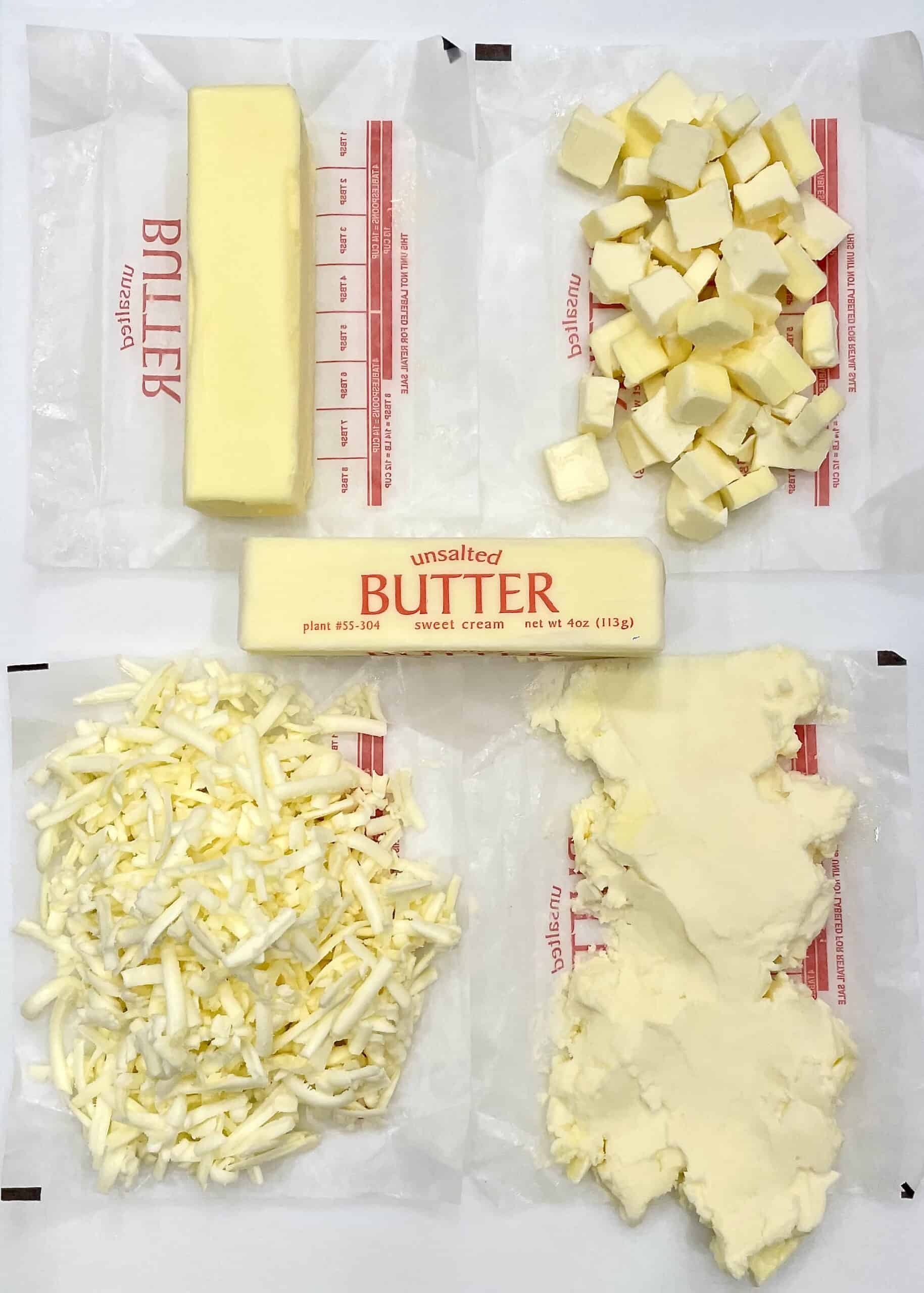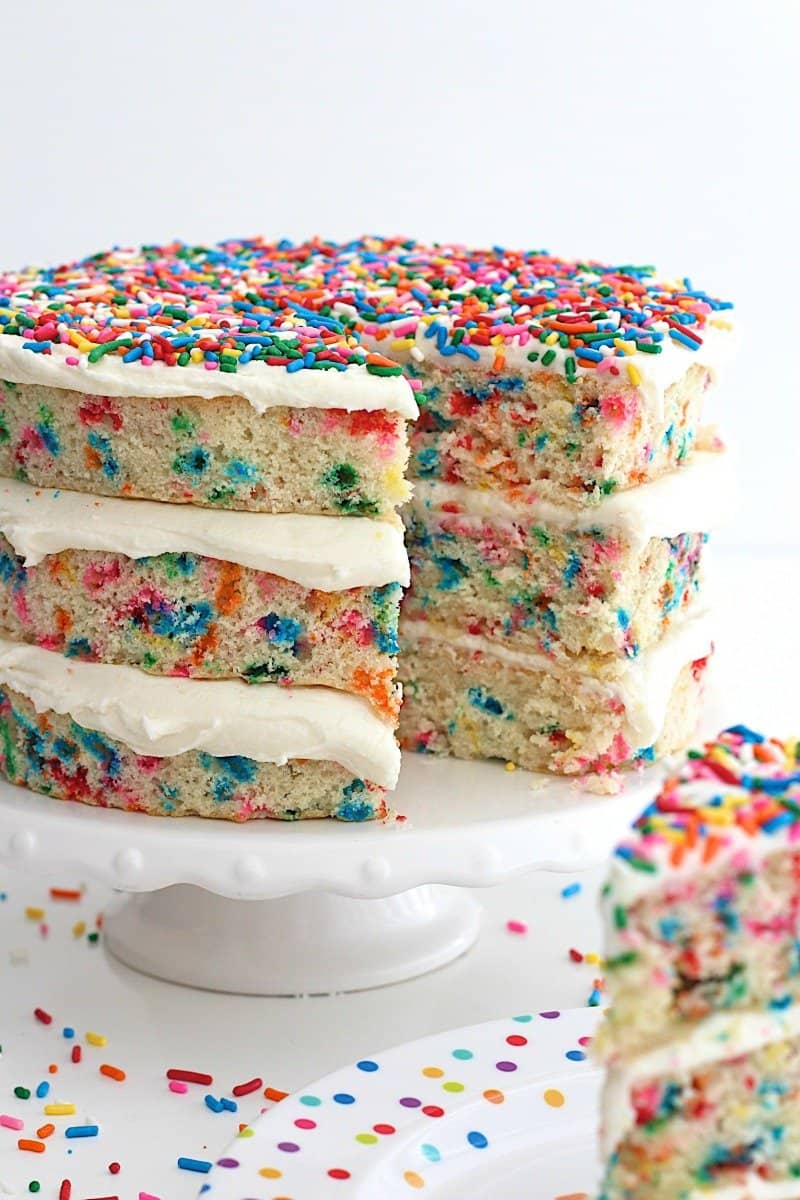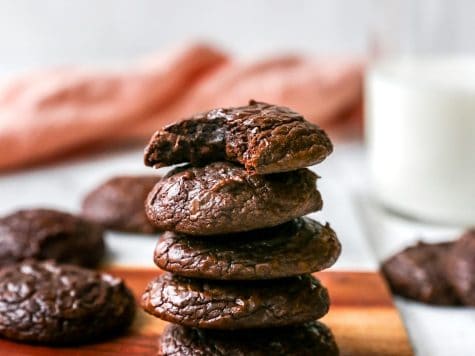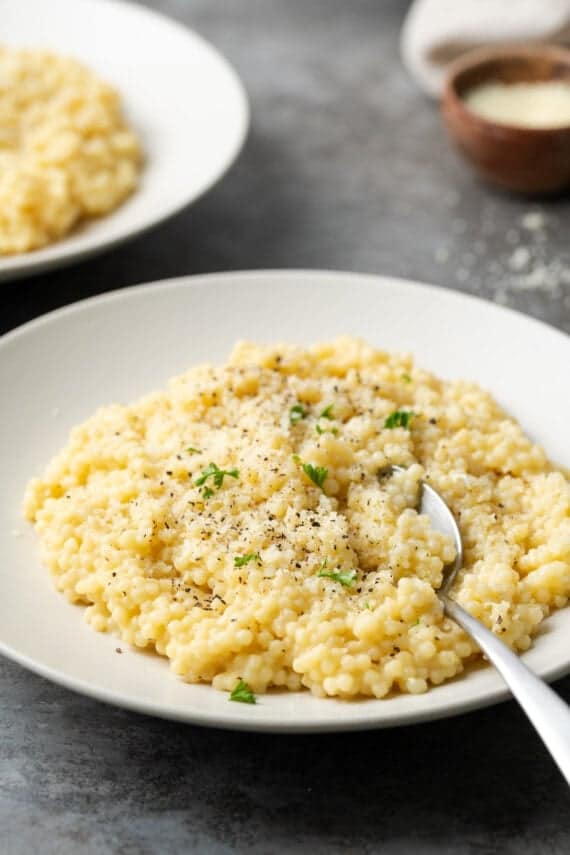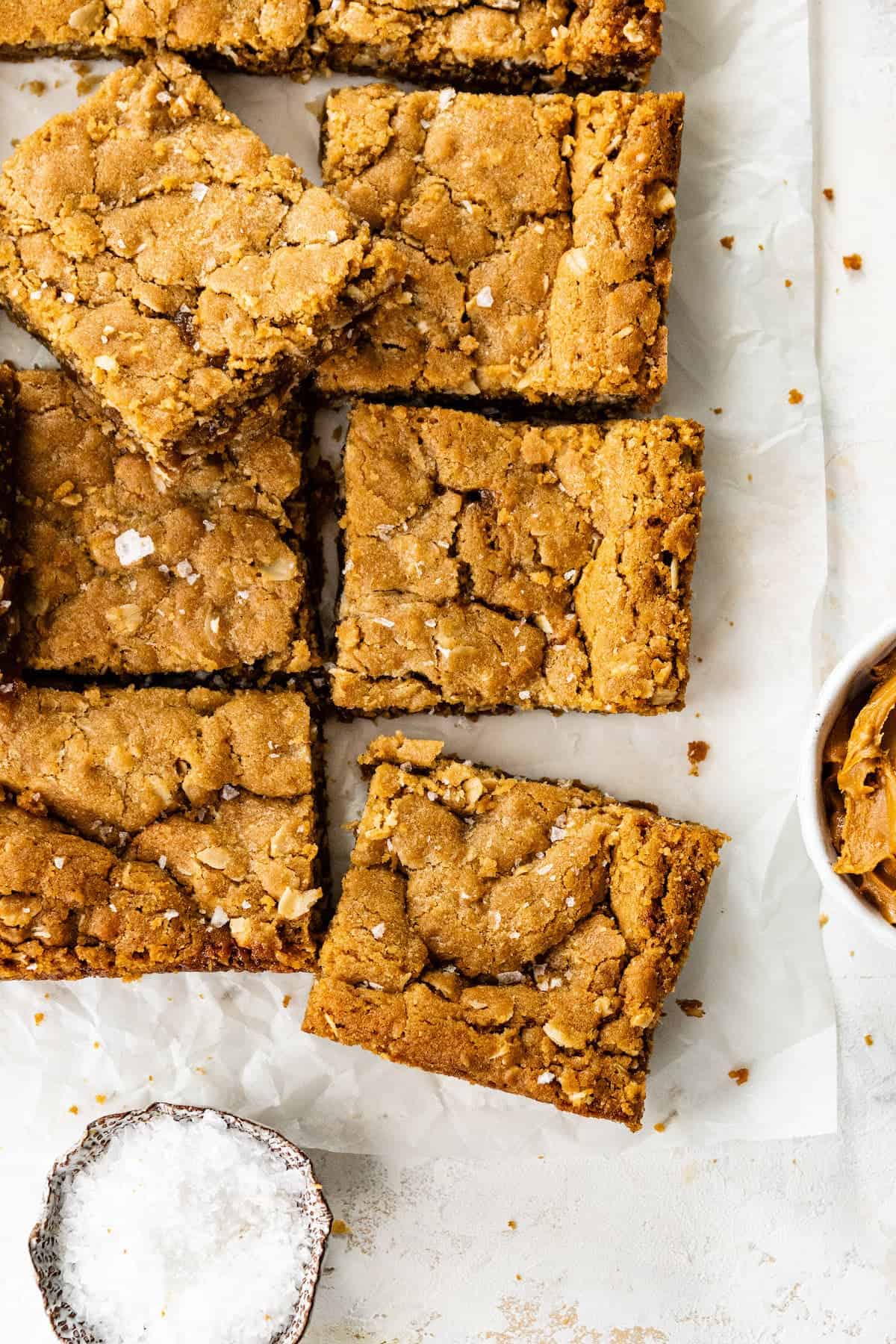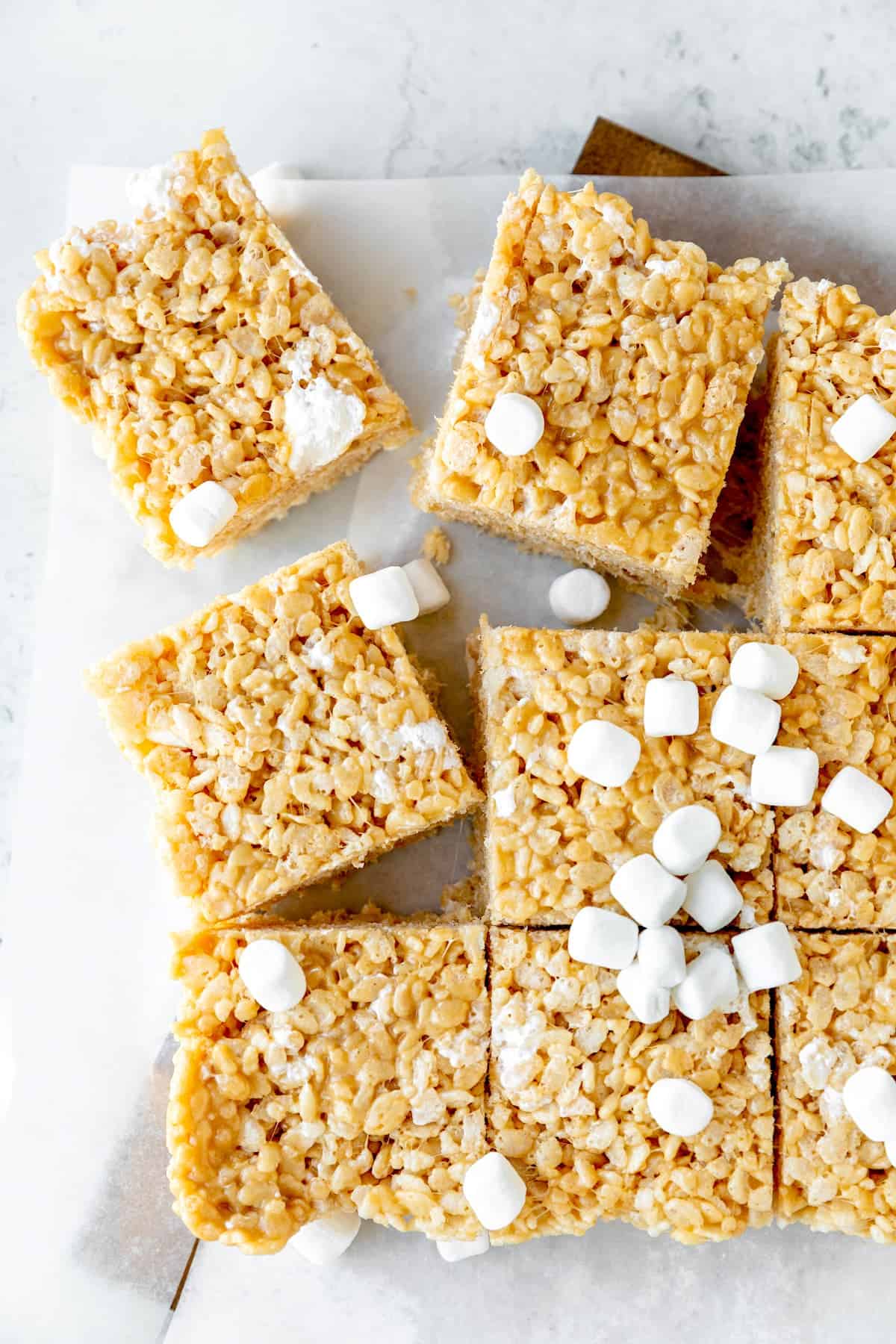Several recipes require butter that’s just the right softness. In The BakerMama’s Basics: How to Soften Butter, I give you a handy guide to softening butter so your cookies, cakes, breads and more come out perfect every time!

The BakerMama’s Basics
Welcome to The BakerMama’s Basics! I created this how-to series to help beginner cooks hone their skills, make the most of their time in the kitchen, and create great family memories. I hope you enjoy!
The Butter Conundrum: Too Hard, Too Soft, or Just Right?
When it comes to baking, butter can be a little bit like the beds in Goldilocks and the Three Bears. Too hard? Too soft? Or just right? And how do you know? The most common mistake in softening butter is over-softening it to the point that it’s warm and starts to melt. Butter that is too soft or melty could result in dense cakes and breads or flat, spreading cookies. If it’s too hard, well, that’s a whole different frustration. So let’s solve it! This How to Soften Butter tutorial should put the butter conundrum to bed once and for all.
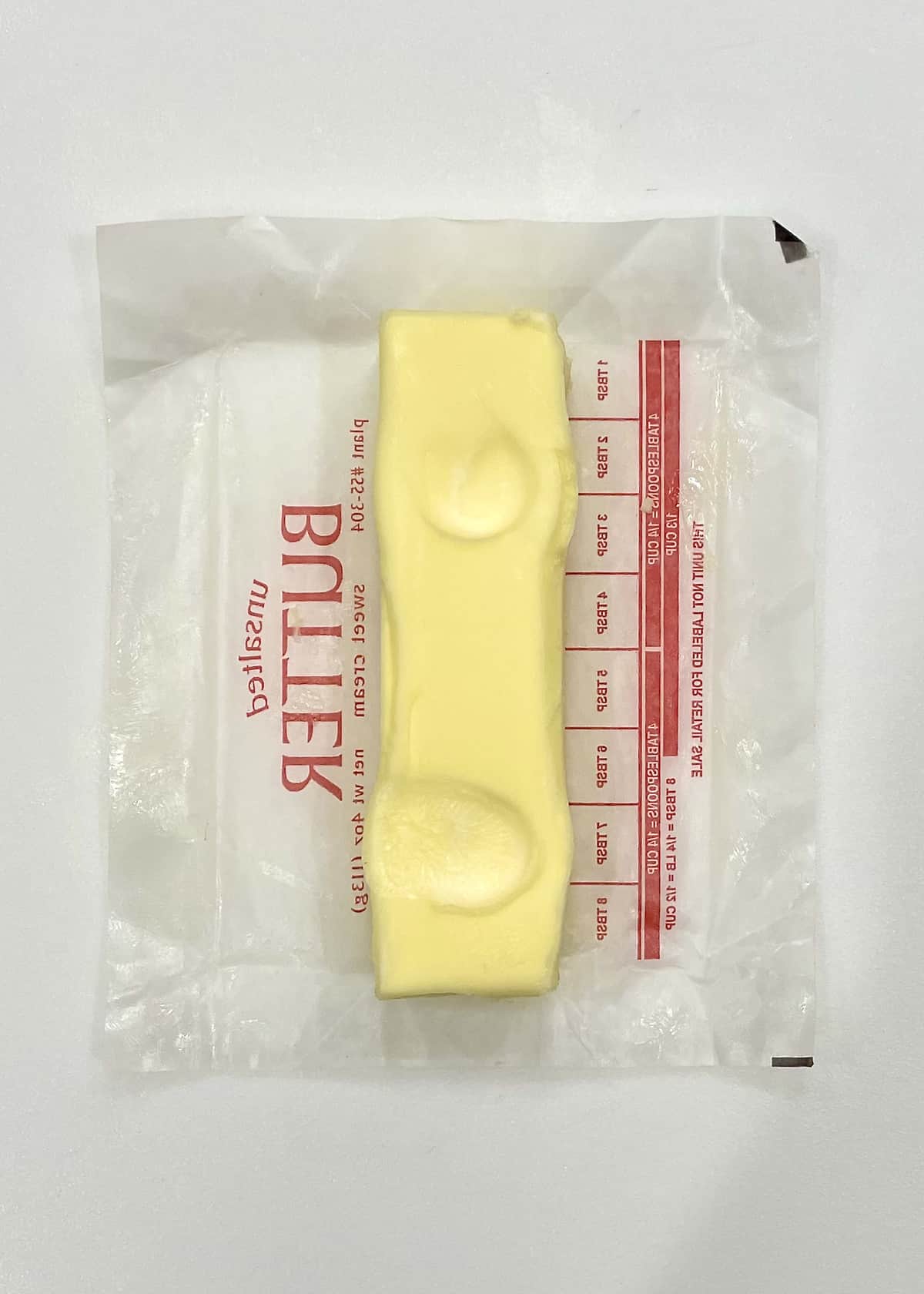
5 Great (and One Not-So-Great) Methods to Soften Butter
First, let’s talk about what ‘softened’ means in a recipe. Softened butter should still feel cold. It should be solid, but hold a fingerprint when pressed. It should also bend without breaking. Now let’s talk about how to achieve it! You’ve got several great options for getting perfectly softened butter–each with its own timetable.
- Set chilled butter out at room temperature for 30-45 minutes. If the butter is frozen, it will take a few hours.
- Cut the butter into small cubes. This helps soften the butter in about 15 minutes. The smaller the pieces, the quicker they’ll soften.
- Grate the butter while it’s cold. This will help soften the butter in a matter of minutes. Partially unwrap the butter stick and use the wrapped half to hold the butter while you shred it using the largest holes of your box grater.
- Pound or roll the butter out between two sheets of parchment paper with a rolling pin. This method requires a bit of work on your part, but should only take about 5 minutes.
- Beat the butter at low speed in a stand mixer until softened. This method is great if you’re already going to be using your mixer with the softened butter for the recipe. You can also use a hand mixer.
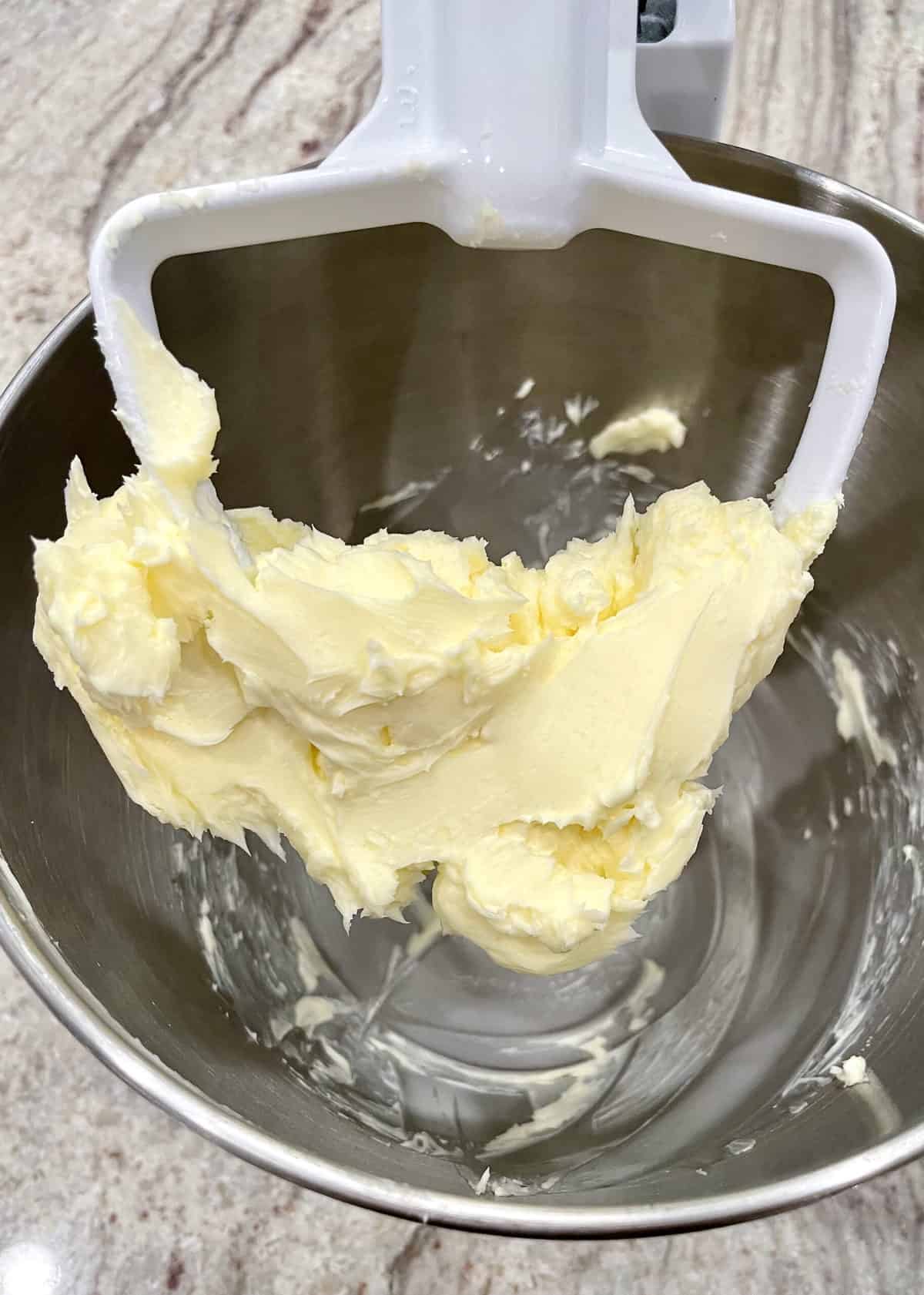
Now for the not-so-great. Y’all already know what I’m about to say, right? I do not recommend microwaving the butter to soften it. It’s fast, but it’s unreliable. If you insist, be sure to have the microwave on the defrost setting (30% power) and microwave the whole stick in 5-second increments, rotating the stick after each increment, until just softened.
Super Yummy Recipes to Try!
That’s it! You’re ready to tackle some baking! Why not try out your new skills on one of these scrumptious recipes?
I hope you find these simple basics helpful! When you make something with the help of my BakerMama’s Basics series, be sure to snap a picture and tag me on Instagram @thebakermama so I can see and others can be inspired!
xoxo,

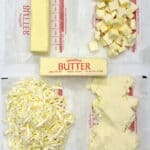
The BakerMama’s Basics: How to Soften Butter
Description
In The BakerMama’s Basics: How to Soften Butter, I give you a handy guide to softening butter so your cookies, cakes, breads and more come out perfect every time!
Instructions
- Set chilled butter out at room temperature for 30-45 minutes. If the butter is frozen, it will take a few hours.
- Cut the cold butter into small cubes. This helps soften the butter in about 15 minutes. The smaller the pieces, the quicker they’ll soften.
- Grate the butter while it’s cold. This will help soften the butter in a matter of minutes. Partially unwrap the butter stick and use the wrapped half to hold the butter while you shred it using the largest holes of your box grater.
- Pound or roll the butter out between two sheets of parchment paper with a rolling pin. This method requires a bit of work on your part, but should only take about 5 minutes.
- Beat the butter at low speed in a stand mixer until softened. This method is great if you’re already going to be using your mixer with the softened butter for the recipe. You can also use a hand mixer.
Notes
- Softened butter should still feel cold. It should be solid, but hold a fingerprint when pressed. It should also bend without breaking.
- I do not recommend microwaving the butter to soften it, but if you insist, be sure to have the microwave on the defrost setting (30% power) and microwave the whole stick in 5-second increments, rotating the stick after each increment, until just softened.

